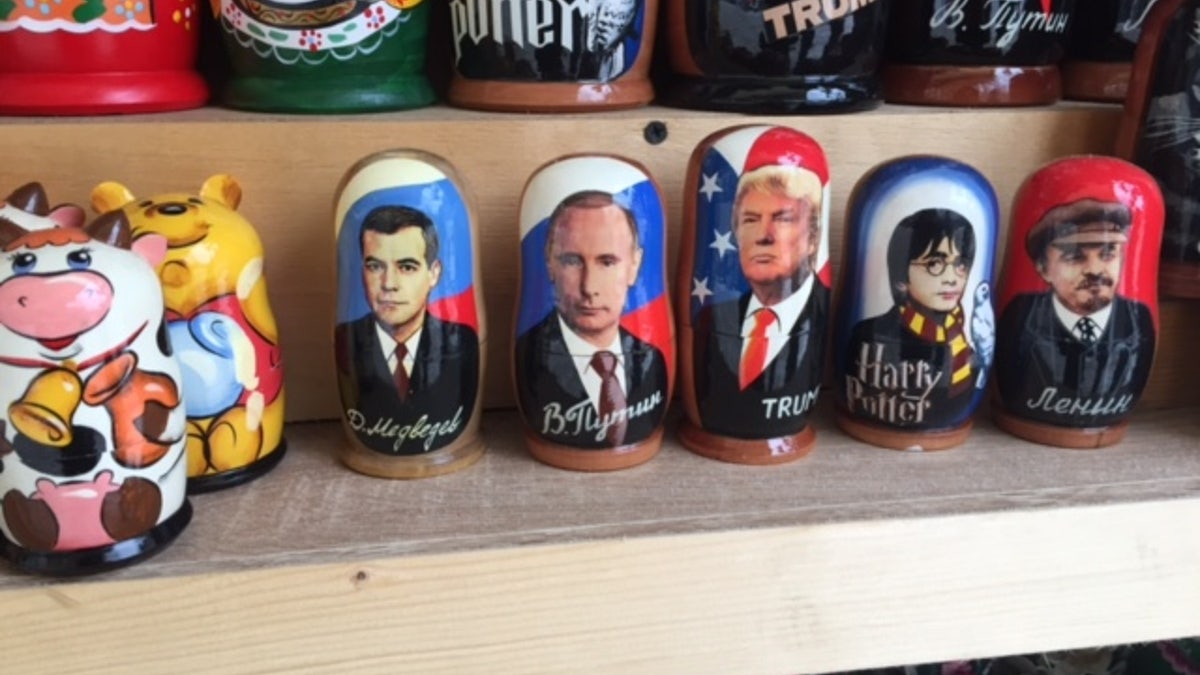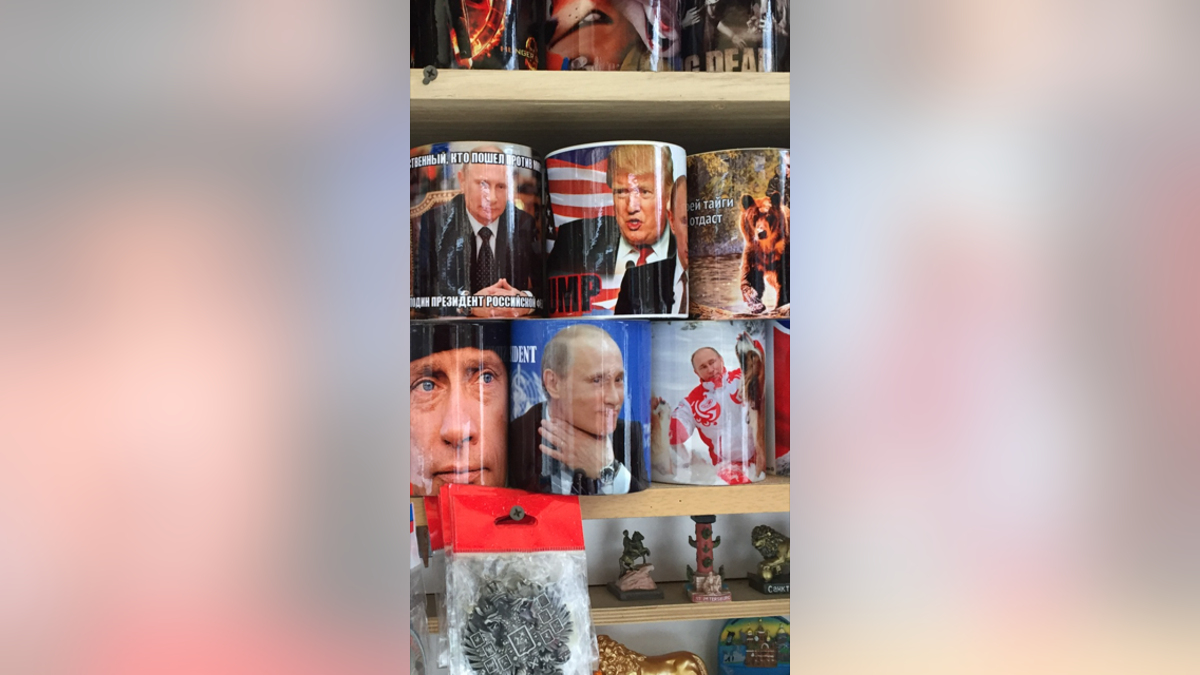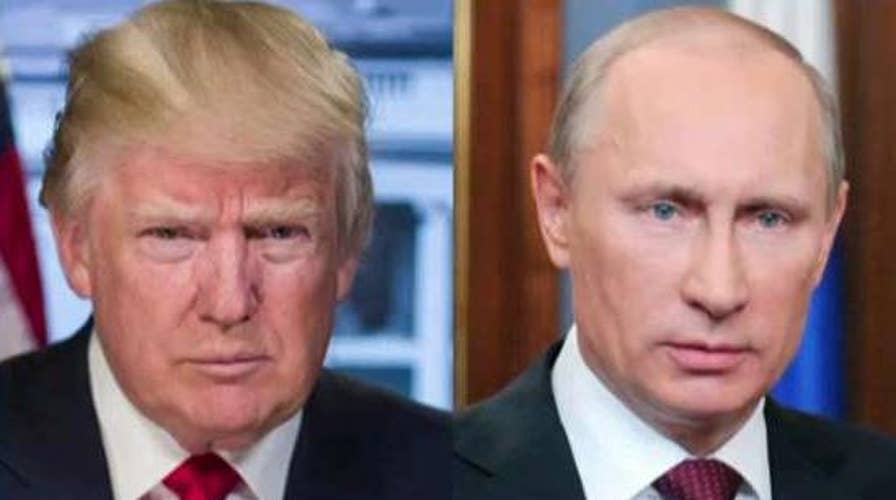Trump phone call could set tone for US-Russia relations
Officials have cited counterterrorism operations as a potential area of cooperation, while skeptics doubt Russia will compromise on its goal in Syria; Rich Edson explains on 'Special Report'
MOSCOW – Despite a growing list of potential conflicts between Russia and the U.S., Russian people hold the new U.S president in high regard and entertain strong hopes the two countries will function not only as friends, but joint world leaders.
The list of conflicts that might have estranged Russians from President Trump is lengthy: The ousting of Gen. Michael Flynn as NSA director for lying about his talks with Russian officials over sanctions; Russian fighter jets buzzing a U.S Navy ship in the Black Sea; Trump demanding the return of annexed Crimea to the Ukraine; and investigations into his team's ties to Russian intelligence.
But none of these have apparently dimmed Russian enthusiasm for Trump.
"Russia and America are special, and very much the same. They are not perfect, they both have some corruption," one Russian foreign ministry official, not authorized to speak on-record, told Fox News this week. "But we want many of the same things. I hope we can cooperate. That would be a win-win. Before, there was no cooperation."
The U.S-Russia association has been one of antagonism since the beginning of the Cold War in 1947, with Russia routinely regarded as a top enemy. But from the Russian side, at least, times have changed.
Across the country, from Moscow to Saint Petersburg, Trump souvenirs adorned with American flags can still be spotted in numerous shops. President Trump is featured as a “matryoshka,” or Russian nesting doll. He is also respectfully portrayed on shirts and alongside their own revered leader, Vladimir Putin, on mugs.

Russian nesting dolls with Trump's image on them. (Hollie McKay)
The official explained that following the Soviet Union’s fall in 1991, "the American Dream was the Russian Dream." However, many were left poor and helpless, eventually giving up on the U.S. hope for help.
"People have lost everything. We were starving. We realized that we must do things our own way, and people stopped believing in western democracy," the source said. "We had to fight very hard to survive and become a country of opportunity. Maybe Russians had a more aggressive mentality in the nineties, but we are past it now. Friendly relations are the only way forward."
Efforts to promote friendly relations are increasing. For the first time, the Roman Catholic Cathedral of St. Mary in Moscow is set to hold an "Easter Friendship" event in April, featuring western classics sung half in English and half in Russian.
"We want to send a message of hope and standing together," event organizer Joshua Levy said.
There is also a growing enthusiasm to expand Russia-U.S relations in the higher education exchange sector. Ivan Kusov, dean of Moscow State University’s branch in Sevastopol, Crimea, told Fox News that while they had no exchange program, students and faculty hold video conferences with California Institute of Technology. Also, last December, Moscow State University students were learning English online with professors from Oklahoma East Central University.
Several Russians insisted that while President Reagan’s view of Russia as the "evil empire" is still prevalent in certain areas, younger generations in particular are much more open-minded.

The positive regard of Russians for the U.S., however, is not reciprocated by Americans, who appear to be treading more carefully when it comes to a fresh Russian embrace. In a YouGov poll conducted across the U.S earlier this month, entitled "America's Friends and Enemies," 22 percent deemed the Russian Federation an enemy, and a further 33 percent called it an unfriendly state. Just 16 percent ticked the friend box, and three called it an ally, with the remainder having "no opinion" on the matter.
For many Russian civilians the notion of still being branded the villain -- even in Hollywood movies like "X-Men" and FX's "The Americans" -- is perplexing, especially given the spike of globalism jihadism.
Putin has stated repeatedly that the U.S and Russia share a mutual interest in squashing Islamic terrorism abroad. That sentiment is reflected by a popular tourist shirt featuring caricatures of Obama, Germany's Angela Merkel and France's Francois Hollande looking meek and childish while Putin towers over them exclaiming, "You will understand now! Look what you've done now!"

The issue of the Syrian Civil War, too, is viewed differently in the two countries. Much of the U.S media, along with the former Obama administration and human rights groups, routinely shed light on alleged horrific war crimes and the bombing campaign of Syria’s Assad regime with allied Russian air support -- a depiction that surprises Russian civilians.
"It is war. There is nothing nice about war. But there are more than enough reasons why Russia must be involved," a ministry official said. "If the terrorists take over, the caliphate will have the money to fund jihadists in the Caucasus [mountain region] and spread here. We must protect our Orthodox churches. We are fighting the bad guys."
Many also say that the feverish Trump support leading up to the November election was less about Trump love and more about hating Hillary Clinton.
"She was stressful to us, and was speaking about Russians as enemies," Sergey Nesvitsky, a 34-year-old product marketing professional, said. "So when Mr. Trump won, I was out with friends and we all matched our drinks. We see a good future."
Anna Sorokina, contributing editor for popular news outlet Russia Beyond the Headlines also expressed confidence that most people in Russia are optimistic. She also said "things should be better, not only because of Mr. Trump, but because we are people -- not politicians -- and people should talk with each other."
Another prominent Moscow-based businessman said that the mere notion of Trump attempting rapprochement with Russia was a positive, especially in view of the fact that a Clinton administration would not be expected to make a similar effort.
But just how long the Trump cheering from the ground level lasts remains uncertain. Russia’s tightly controlled media has mostly downplayed tensions with the U.S. political developments, framing the Flynn firing as another U.S intelligence effort to frame Russia as the ultimate adversary. But how much longer Russian people are willing to give the U.S. the benefit of the doubt is uncertain.
Last week, there were reports -- dismissed by Russian officials -- that the Kremlin had ordered state media to ease off on the Trump cheering as controversies and divergences mount.
"Don't forget Russia always needs an external enemy to focus on the foreign affairs of another country," added one U.S official with close ties to the Kremlin. "It portrays a sense of strength, and it takes the focus off the domestic problems."

